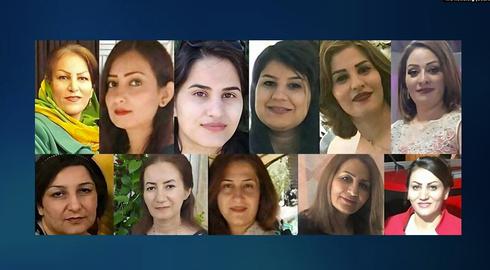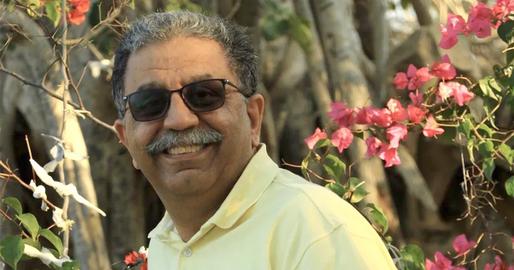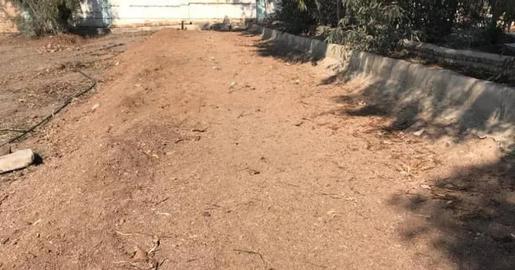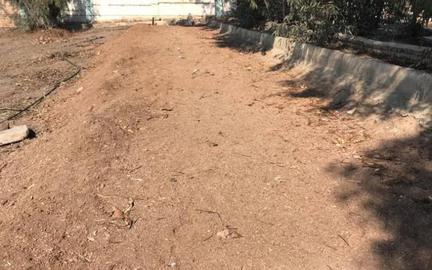Ebrahim Raisi held positions managing various departments of the Islamic Republic's judiciary for nearly 40 years. And he was reportedly a member of the "death committee" in the 1980s, in Iran's judiciary, responsible for approving and issuing numerous death sentences during his career.
This report delves into the execution of several Baha'i citizens during his tenure.
Raisi as the Prosecutor of Karaj
Ebrahim Raisi's involvement in judicial administration began in 1981 when, at the age of 20, he served as a prosecutor in Karaj city.
Shortly after, he was appointed as the prosecutor of Karaj by the order of Ali Qudousi, the general prosecutor of the country.
During his tenure as Karaj prosecutor, which lasted until 1984, Raisi also assumed the responsibility of Hamadan prosecutor for a brief period.
The persecution of Baha'is in Karaj, similar to many cities in Iran, intensified during Raisi's tenure as prosecutor.
Under his authority, arbitrary armed groups, often affiliated with the Hojjatiyeh organization, targeted Baha'i households.
These groups, empowered by prosecutor-issued warrants, conducted raids on Baha'i homes, confiscated personal belongings and unlawfully detained individuals.
Notably, Raisi's tenure witnessed a transition where these arbitrary elements effectively became agents of the government.
Most raids resulted in the seizure of religious texts, photographs, cars, cash, gold, checks, and property documents.
Even properties of Baha'is living abroad were confiscated by these armed groups.
During Raisi's tenure as chief prosecutor of Karaj, five Baha'i citizens were executed on ideological charges.
Raisi was directly implicated in three of these executions and indirectly involved in two others.
The victims included Farhang Moedat, Hashim Farnoosh, Badiullah Haqpeiker, Ishraqiyeh Forouhar, and Mahmoud Forouhar.
Farhang Moedat and Hashim Farnoosh, two Baha'i activists in Karaj, were arrested on Raisi's orders and subsequently executed in Evin prison on June 23, 1981.
Badiullah Haqpeiker, a prominent businessman in Karaj, was arrested twice by Raisi's order, and his business and home were confiscated in 1981.
Alongside Mahmoud and Ishraqiyeh Forouhar, an elderly Baha'i couple, Haqpeiker was detained in Karaj prison for nine months before being executed on November 30, 1980.
There was no evidence of a fair trial, and they were denied legal representation.
Haqpeiker and Forohar, both 65 years old, and Ishraqiyeh, 58 years old, were reportedly tortured during their imprisonment.
Following their execution, the Karaj Prosecutor's Office, headed by Raisi, issued a statement announcing their deaths.
Raisi, Deputy Prosecutor of Tehran
After serving three years as the prosecutor in Hamadan, Ebrahim Raisi was transferred to Tehran and appointed as the deputy prosecutor, a position he held from 1985 to 1988.
During Raisi's four-year tenure in Tehran, eight Baha'i citizens were executed in Evin prison, and one individual named Abbas Adelkhani died after four years of imprisonment without trial or verdict.
There is no evidence or information regarding any trials for these individuals.
Their associates and other detained Baha'is were unaware of any court proceedings or verdicts.
Each of the executed individuals was held in temporary detention without a warrant for over two years.
They were denied access to legal representation, and their bodies were not returned to their families. It is presumed that they were buried in Khavaran cemetery.
Raisi, Tehran Prosecutor
During his tenure as Tehran prosecutor from 1989 to 1994, Ebrahim Raisi oversaw the execution of Bahman Samandari, a Baha'i citizen, under highly questionable circumstances.
Samandari was summoned to the Revolutionary Prosecutor's Office in Tehran on March 17, 1992, and executed less than 24 hours later.
His family only learned of his execution after the Nowruz holiday. His body was not returned to his family and was buried without a religious ceremony by authorities.
A letter by Rosa Mahboubi (Samandari), Bahman Samandari’s wife, to the chief of the Iranian judiciary in 1992, detailed the circumstances of Samandari’s arrest and execution.
Raisi, the Deputy of the Judiciary
After serving as the head of the National Inspection Organization for ten years, Ebrahim Raisi was elected to the position of the first deputy of the Judiciary in 2013.
He held this post until 2014, after which he served as the country's attorney general for one year.
During Raisi's tenure in these positions, seven leaders of the Iranian Baha'i community, known as the "Yaran" or "Friends" of Iran, were arrested. The Yaran were an informal leadership group that dealt with basic pastoral affairs for the Baha'i community – and with the full knowledge of the Iranian government.
Before this, members of the Iranian Baha'i community, belonging to an elected governing body, the National Spiritual Assembly of Baha'is of Iran, were abducted, arrested, and executed between 1980 and 1983.
There were also reports of the possibility of death sentences being issued for these seven individuals.
Regarding the trial of the Baha'is, Ebrahim Raisi, as the first deputy of the Judiciary, told reporters: "We consider the Baha'is to be the handiwork of the British, and if any of the Baha'is are tried, it is on charges of spying for the Zionist regime."
He emphasized that these individuals were not being tried for their Baha'i faith but rather for alleged espionage.
Raisi, along with other officials of the Islamic Republic, accused the Baha'is of espionage without providing evidence or documents to support these claims.
Despite this, the seven Baha'i citizens were eventually released from prison after ten years.
























comments